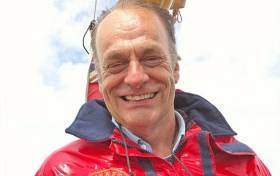Displaying items by tag: journalist
Changing Media Horizons for Sailing Journalists – YJA
Barry Pickthall, the former yachting correspondent to The Times and Sunday Times newspapers, has been elected Chairman of the Yachting Journalist's Association which represents the interests of some 250 specialist media from as far afield as Ireland, Australia, Caribbean, China, Europe, Gulf States, New Zealand, Singapore, South Africa, and USA.
Barry takes over during challenging times for marine media with both the number of traditional magazine titles and circulation figures dipping, pay rates stagnating and the demand for copyright free pictures and footage on the increase.
It is not all bad news. Web sites and digital advertising are flourishing and demand for good video footage on the increase. TV viewing is also changing fast with viewers becoming much more selective over what they watch, using catch-up services rather than video recorders to view programmes they miss.
"The sport, and the way we present and watch it, is changing so fast that unless we adapt, we run the risk of being side-lined altogether." Says Barry Pickthall. "Journalists not only need to be masters of the pen, but produce good image and video content to promote what they have written, and for photographers and video cameramen, the role is reversed."
YJA members are being invited to provide valuable work experience for graduates, and the Association will be promoting their work in a competition to encourage budding media stars to get themselves in print.
In another major initiative, the YJA is also planning to introduce a new competition to promote the work of existing members to a world-wide audience.
The YJA has also refined its membership rules to allow Advertising and PR executives within the marine industry to join as associate members in order to widen the sphere and influence of the Association.
Membership of the Yachting Journalists' Association costs £40 per year and includes an Internationally recognised Press Card, a listing on the YJA website highlighting your specialist skills and contact details, and many other benefits.
Tributes Paid to Marine Journalist Derek Davis
#derekdavis – Marine minister Simon Coveney TD has led tributes to marine journalist Derek Davis (67) who died today. The former broadcaster and RTÉ TV presenter and former Afloat fishing correspondent was born in Co Down and began his media career as a news journalist, working with the American network ABC and BBC Northern Ireland before moving to the newsroom in RTÉ.
'Derek was a big personality, a passionate and talented communicator on both food and marine issues. His love for the sea was so evident whenever I met him. Derek was a much loved figure in so many Irish homes for the connections he created over a lifetime of broadcasting', Mr. Coveney said. 'He will be missed by so many. I'd like to offer my condolences to his family and many friends.' he added.
And tributes paid to broadcaster Derek Davis who died today. Join @boucherhayes from 4.30 http://t.co/wDHBvgfmPk pic.twitter.com/t5tCdU1hru
— Drivetime RTE (@drivetimerte) May 13, 2015
[UPDATED] Former RTÉ radio & TV host Derek Davis has died - http://t.co/iSkfH7Tf1Q #RIP #RadioNews pic.twitter.com/lDf0GbY5Eh
— RadioToday (@RadioTodayIE) May 13, 2015
Check out a gallery of the late broadcaster and writer Derek Davis whose died earlier today http://t.co/OGftaLtN14 pic.twitter.com/aedNpTUewk
— RTÉ One (@RTEOne) May 13, 2015






























































